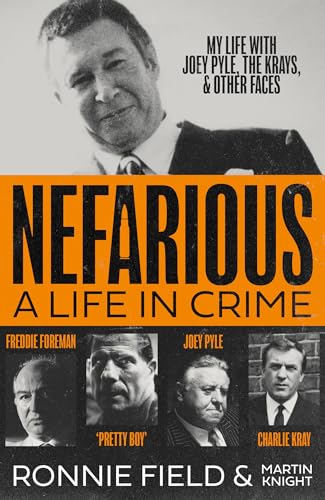This was a fascinating read of the compelling life story of a truly interesting, charismatic and loyal career criminal, Ronnie Field.
Tracing Ronnie’s journey, from his horrifying upbringing, through his early forays into criminality in the South London area, to becoming a respected associate and friend of the criminal elite, this book provides an honest and often hilarious account of many of the most significant crimes, criminals and faces of the last half century.
Through many daring armed robberies, police stings, acts of violence and, ultimately, incarcerations, Ronnie and co-author Martin Knight, illustrate the nearly forgotten underworld, governed by the Krays, the Richardsons, and Joey Pyle.
Not just a crime book, this memoir is an account of a life lived according to old school rules, where crime wasn’t a dirty business, it was a necessary business that should be conducted with honour.
The pages are packed full with intriguing characters that played a part in Ronnie’s life, from the Krays, Lenny McLean, Dave Courtney, and Charles Bronson, to famous musicians, boxers, IRA volunteers and gypsy kings. Not forgetting his friend and mentor, the lesser known (though not lesser feared and respected) than the Krays, London crime boss, Joey Pyle.
Ronnie tells his story with warmth and humour, with his commentary on the society he inhabited, the governments who made the laws he broke, the justice system who judged and confined him, and the criminals he called friends and was unquestionably loyal to, make this book an exceptional account of a Britain that’s fading into the past.
Highly recommended.

